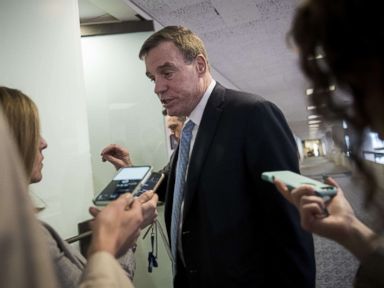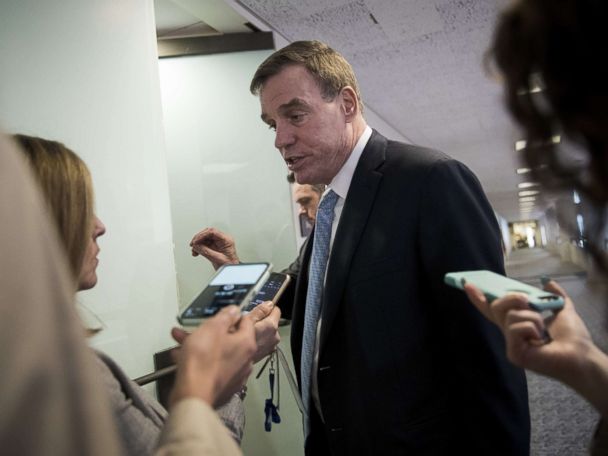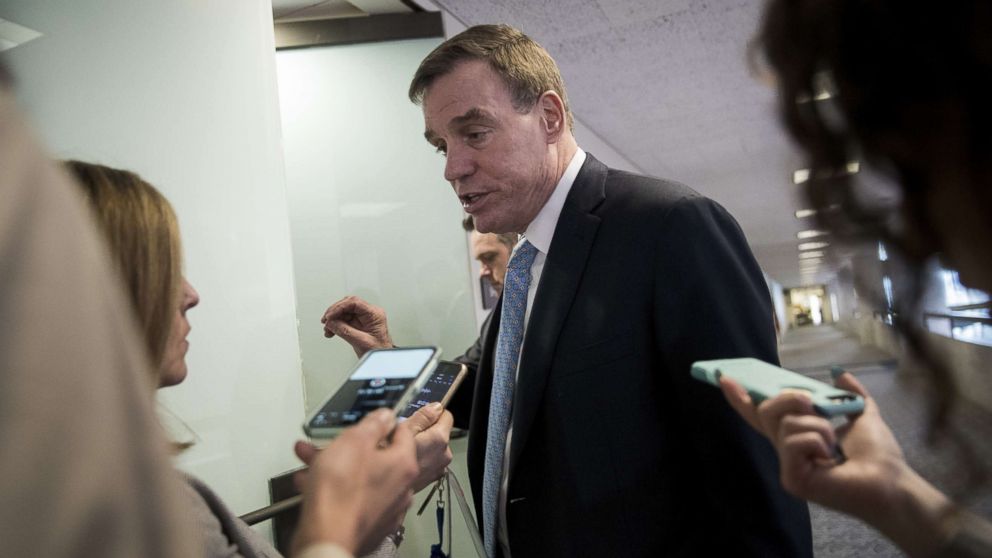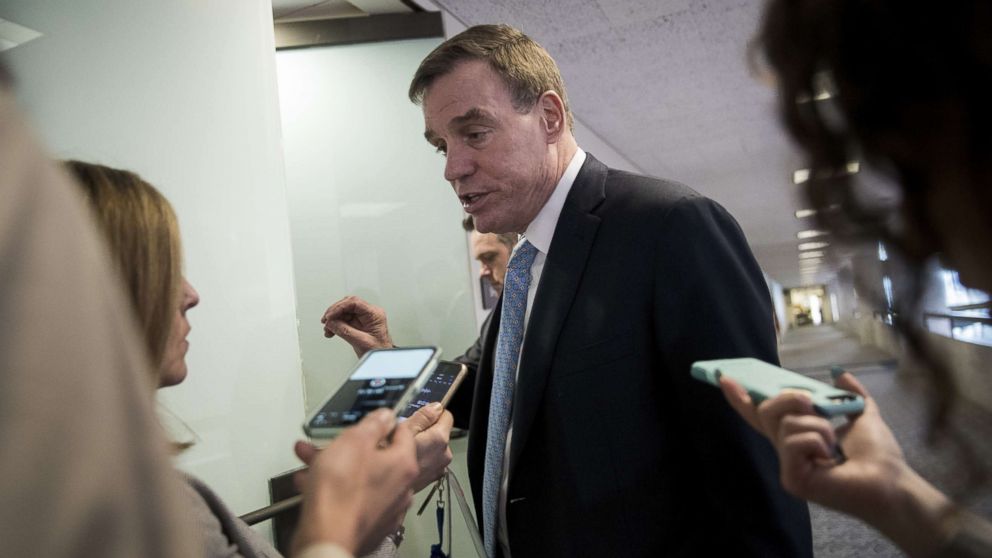






The United States has done far too little to respond to Russia’s cyber attack on the 2016 presidential election, the top Democrat on the Senate Intelligence Committee charged Thursday, adding that the time has come to “spell out a deterrence doctrine.”
“We may need to make clear to Russia,” Sen. Mark Warner warned in a speech, saying “If you go about using cyber warfare and disinformation against us, we’re going to call you out and we’re going to punch back.”
The pointed warning comes as the committee, which is investigating the unprecedented foreign interference, is preparing to release its first election security report ahead of the Easter recess and in time for many 2018 midterm election primaries.
Committee chairman Richard Burr, a North Carolina Republican, told ABC News that this would be the first of monthly reports from his panel thereafter related to its investigation of Russia meddling.
“We made a decision that we’re going to take pieces of the investigation and roll them out as we conclude them. We’ll have an overview of the (election security) report, recommendations for election security, and an open hearing with federal and state election officials,” Burr said. “It will be an opportunity for us to hear from witnesses” and make changes to the committee’s final report, expected later this year.
“I think you’re going to see us roll things out every 30 days,” Burr added, though he demurred when asked about timing of a final report, making it entirely possible that the panel will be investigating Russian interference through this year’s potentially-pivotal congressional elections.
Warner said of the election cyber-security report, “I think you’re going to see very specific recommendations. The one thing I want to make sure we also try to include is – there’s election security, but one of the most vulnerable entities in our democratic system is a campaign itself. A campaign is the quintessential startup. The notion that they’re going to have the kind of good cyber-hygiene you need — I think that has to be a part of what we at least put out there.”
“You could have enormous influence by manipulating a campaign,” Warner warned.
Just last week, Special Counsel Robert Mueller indicted 13 Russians and three Russian companies in an elaborate, illegal scheme to disrupt and manipulate the 2016 elections, specifically using social media like Facebook, Twitter, and YouTube.
Some of the Russians were also in contact with “unwitting individuals associated with the Trump campaign,” according to the indictment, though no wrongdoing was alleged by Mueller on the part of any campaign officials.
“I believe we are now engaged in a fight in the shadows, and I’m not sure that that’s a fight we are currently winning,” Warner warned in his speech at the Carnegie Endowment for International Peace. “In a national election in a presidential year, what we need to understand is that a presidential election can we swung by a few thousand votes in one state.”
Facebook alone indicated last year that Russian-created, fake content may have reached as many as 126 million people across its platform during the 2016 election.
“The truth is, where we stand here in the beginning of March, we are not prepared. We are not fully prepared,” Warner pointedly cautioned.
Warner’s stark warnings were mere echoes of more grave alarms sounded by some of the nation’s top Intelligence Community officials in recent weeks.
Adm.l Michael Rogers, departing head of National Security Agency, who also leads the U.S. Cyber Command, told a Senate panel Tuesday that the White House has not given him the go-ahead to launch offensive measures against Russia for its continued meddling in the U.S. election systems.
“Clearly what we have done hasn’t been enough,” Rogers, who is set to retire in April, said of Russia’s persistent efforts to interfere.
“The United States is under attack,” Director of National Intelligence Dan Coats bluntly warned lawmakers at a recent hearing. “The risk of interstate conflict, including among great powers, is higher than at any time since the end of the Cold War.”
Warner said the U.S. needs to recognize the amorphous threat, expose Putin’s game plan, and inoculate our society.
“To do that, we need to expose the Russian playbook,” Warner said, adding, “We need to get to the bottom of what happened and we need to do it in a bipartisan fashion. Politicization will only undermine our efforts.”
“The truth is what we experienced was an attack by a foreign nation,” Warner said. “Our tactics have not shifted aggressively enough.”
###

